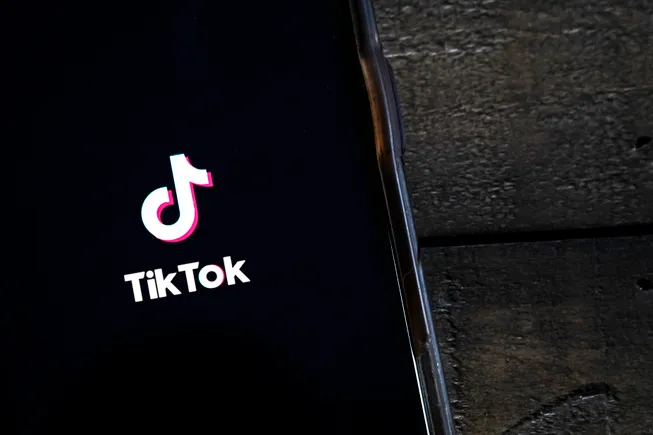Here’s an interesting question: “Did Meta halt its efforts to stop TikTok’s expansion in the U.S. in order to strengthen its defense against the FTC’s antitrust case?”
Because, at one stage at least, Meta was playing a role in seeding concerns about TikTok, as the Chinese-owned app gained traction in the U.S.
Back in 2019, Meta CEO Mark Zuckerberg had a private dinner with then-President Donald Trump, in which they reportedly discussed, among other things, the threat posed by Chinese social media apps in the U.S., and TikTok specifically.
At the time, as noted, TikTok was steadily rising in popularity, and Zuckerberg had raised concerns about the app in various other interviews and appearances, noting that TikTok had been censoring users, and restricting information flow, at the behest of the Chinese government.
As Zuckerberg noted in his speech at Georgetown University in October 2019:
“While our services, like WhatsApp, are used by protesters and activists everywhere due to strong encryption and privacy protections, on TikTok, the Chinese app growing quickly around the world, mentions of these protests are censored, even in the U.S. Is that the internet we want?”
Zuckerberg met with Trump, as well as other U.S. senators, in October 2019, then in November that year, just days after these meetings, the U.S. government launched a national security review of TikTok owner ByteDance and its acquisition of Musical.ly, the platform that became TikTok.
The following year, amid the COVID pandemic, Trump pushed for a full sell-off of the app to a U.S. owner, in order to avoid security risks.
That push was eventually abandoned by the Biden Administration in 2021, only to be re-launched a year later, leading to the current TikTok sell-off bill.
But at one stage, Zuckerberg himself did seem to be playing a key part in pushing for the U.S. government to force TikTok out of America, by provoking fears of CCP intervention, and overt censorship at the behest of Chinese officials.
What’s interesting to note here is that in 2020 the FTC also launched action against Meta, in which it alleged that Meta had illegally maintained its social networking monopoly “through a years-long course of anticompetitive conduct,” including the acquisition and/or replication of various potential competitors.
So when TikTok was initially on the rise, Zuck and Co. seemed pretty keen to push for its expulsion from the U.S. But by 2020, amid a new investigation from the FTC, which might potentially lead to the forced breakup of Instagram, WhatsApp, and Facebook, Meta seemed to have tempered its opposition, and taken a step back from whispering its concerns into the ears of U.S. senators.
Of course, there was already a level of momentum around the broader TikTok concerns by then, and Meta didn’t really need to stoke those flames any further.
But it is interesting to when you consider Meta’s latest defense against the FTC’s claims, which are finally being heard in court this week.
As outlined by Meta spokesman Andy Stone, the addition of TikTok as a viable competitor, which it wasn’t when the FTC first launched its case in 2020, significantly weakens the FTC’s case against Meta holding a monopoly in the digital ads market.
There’s YouTube as well, though YouTube, at the time, wasn’t considered a direct competitor for Meta, which has since become more video-focused. It’s TikTok, specifically, that weakens the FTC’s case, and it’s interesting to see how Meta is now using TikTok’s rise as a key example, in order to dilute the FTC’s claims.
Because had Zuck and his army of Washington lobbyists succeeded in forcing TikTok out of the U.S. back in 2019, Meta wouldn’t have this defense, and the FTC’s case would look a lot stronger, in terms of Meta buying up competitors to fend off competition.
Indeed, before ByteDance purchased Musical.ly, and converted it into TikTok, Meta had also considered making a bid for the music-based app.
Which, if anything, supports the FTC’s case, that Meta was monitoring the rise of any potential competitor, and looking to cut them down through aggressive acquisition or replication.
That’s how it nullified Snapchat, by replicating its Stories feature, and there does seem like a viable case that Meta was using its market advantage to crush competition at every turn.
Till TikTok took off.
It seems like a risky bet, to allow a competitor to gain market share in order to prove a point, but when that point could lead to the forced sell-off of IG and WhatsApp as a result, maybe it’s worth the bet.
I mean, Meta couldn’t know that TikTok would get so big, and Meta’s not responsible for TikTok’s almighty algorithm, which has made the app so addictive.
But it does seem like Meta may have eased off, potentially to allow for a competitor to gain traction, thus diluting the FTC’s case.
The case is underway in the Federal Court.














